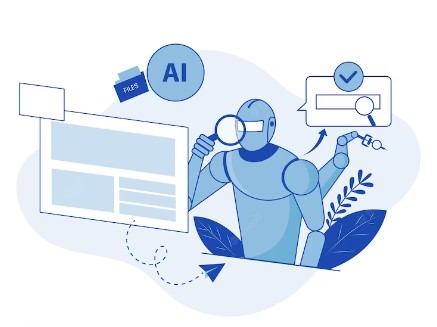

Google is a household name when it comes to internet search engines. It has revolutionised how we access information with its robust algorithm and intelligent features that help us find the content we need. However, with the rise of artificial intelligence (AI), there has been an increasing concern about its impact on content creation. This article will delve into Google’s views on AI-generated content by platforms such as ChatGPT and Jasper and provide a comprehensive understanding of the future of content creation.
The emergence of AI has revolutionised the way content is created. AI-powered tools can generate content quickly and precisely that humans could never achieve. Platforms such as ChatGPT and Jasper are leading the way in AI-generated content creation, using machine learning algorithms to create compelling content in a fraction of the time it would take humans. However, there are concerns about the quality and authenticity of AI-generated content, which is where Google’s views come in.
Google has been vocal about its views on AI-generated content. In a blog post, the company stated that it supports using AI in content creation, but with certain caveats. The post says that AI can help create valuable and engaging content but cannot replace human creativity and expertise. Google believes that human-generated content is more authentic, insightful, and helpful and encourages publishers to prioritise human-generated content over AI-generated content.
Before delving further into Google’s views on AI generated content, let’s look at the pros and cons of this type of content.
Google employs a variety of methods to identify content produced by AI. The techniques are content structure analysis, writing style and syntax inspection, and pattern detection using machine learning algorithms. Additionally, Google has acknowledged that human reviewers are used to rating the quality of its content, particularly in high-risk industries like healthcare and finance.
Google doesn’t think artificial intelligence-generated content will displace human-produced material. Although AI can produce material rapidly and cheaply, it requires more originality and meaning than humans can provide.
AI-generated content can be valuable, particularly for news outlets and other publications that require a fast turnaround time. Content generated by AI will, however, have varying levels of quality, with some content appearing unnatural or robotic.
Google supports using AI in content creation but believes human-generated content is more authentic, insightful, and valuable. Publishers are encouraged by Google to prioritise human-generated content over artificial intelligence-generated content.
Since AI generated content can be produced quickly and cheaply, SEO can benefit. However, it’s critical to remember that Google’s search algorithms prioritise high-quality, helpful material. Excellent content is essential.
Publishers should prioritise human-generated content above artificial intelligence, make valuable, insightful information, and rely on trustworthy sources to ensure high-quality content.
In conclusion, AI-generated content has advantages and disadvantages. Even though it can be an essential tool for content creation, more is still required than human creativity and knowledge. According to Google’s views on AI-generated content produced by platforms like ChatGPT and Jasper, it is important to prioritise human-generated content and ensure the quality of the content. Although AI is unlikely to replace human-generated content ultimately, it will undoubtedly play a more significant role in content creation as it develops.
It is clear that content creation is evolving, and publishers must adapt to keep up with the latest trends and technologies. It is important for publishers to prioritise high-quality, valuable content to ensure the content they publish will be well-received by both readers and search engines.
ALSO READ: 3 Marketing Strategies You Can’t Ignore To Drive Your Digital Media Growth in 2023